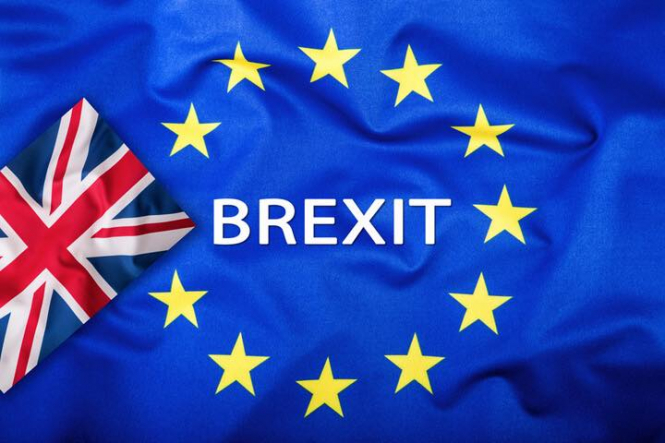Singapore Retail Sales Rebound In September
Singapore's retail sales grew in September after declining in the previous two months, preliminary data from Statistics Singapore showed on Monday.
Retail sales at current prices rose 1.9 percent year-on-year following a 0.4 percent decline in August and a 2.6 percent slump in July. In June, sales grew 1.9 percent.
Excluding automobiles, retail sales increased 1.8 percent year-on-year after a 2.4 percent increase in August.
Automobile sales grew 2.5 percent year-on-year following declines in the previous two months.
Sales at petrol service stations registered the biggest gain of 11.4 percent in September followed by watches and jewelry, sales of which increased 7.4 percent.
Food store sales grew 2.5 percent. In contrast, sales of computer and telecommunication equipment continued to fall, down 5.8 percent. Sales of optical goods and books dropped 3.1 percent.
On a month-on-month basis, retail sales decreased a seasonally adjusted 0.4 percent at current prices in September after a 2.4 percent increase in August.
News are provided by
InstaForex.
Please visit our sponsors
Results 2,091 to 2,100 of 3458
Thread: Forex News from InstaForex
-
12-11-2018, 08:48 AM #2091

-
13-11-2018, 07:16 AM #2092

European Economics Preview: German ZEW, UK Labor Market Data Due

Europe is set for a busy day on the economics front with the ZEW investor confidence survey results from Germany and the labor market data from the UK due.
The UK labor market data is due at 4.30 am ET on Tuesday. The ILO unemployment rate is expected to remain unchanged at its 43-year low of 4 percent in the three months to September and employment is forecast to grow 25,000.
Average earnings including bonus is expected to grow 3 percent year-on-year after a 2.7 percent gain in the previous period. Excluding bonus, pay is forecast to rise 3.1 percent, the same as in August. The rate of growth was the fastest since late 2008.
The Mannheim-based ZEW is set release its latest investor confidence indicator for November at 5 am ET. The German investor confidence measure is expected to weaken to -26 from -24.7 in October. The current situation index is forecast to drop to 65 from 70.1.
In other data, the Central Bureau of Statistics is set to publish the Dutch retail sales figures for September at 00.30 am ET. Destatis is set to release the final figures for German inflation for October at 2 am ET.
European Central Bank's Chief Economist Peter Praet is set to speak in London at 3 am ET. Producer and Import prices for October are due from Switzerland's Federal Statistical Office at 3.15 am ET. The producer and import price index is forecast to rise 2.2 percent year-on-year following 2.6 percent increase in September. Month-on-month, the index is expected to edge up 0.1 percent following a 0.2 percent fall. ECB's Sabine Lautenschlager, who is the Vice-Chair of the Supervisory Board of the Single Supervisory Mechanism, is set to speak in Frankfurt at 3.45 am ET. Final consumer price inflation data for October is due from Portugal at 6 am ET. Headline inflation was estimated at 1 percent on October 31. ECB Vice President Luis de Guindos is set to speak in Frankfurt at 2 pm ET. Also due on Tuesday are unemployment data from Iceland and Poland current account balance, both at 7 am ET.
News are provided by InstaForex.
-
14-11-2018, 07:40 AM #2093

China Industrial Production Climb 5.9% In October

Industrial production in China was up 5.9 percent on year in October, the National Bureau of Statistics said on Wednesday.
That exceeded expectation for 5.8 percent, which would have been unchanged from the September reading.
The bureau also said that retail sales climbed 8.6 percent on year - missing forecasts for a gain of 9.2 percent, which again would have been unchanged from the previous month.
Fixed asset investment advanced an annual 5.7 percent, surpassing forecasts for 5.5 percent and up from 5.4 percent a month prior.
News are provided by
InstaForex.
-
15-11-2018, 05:29 AM #2094

Australia Jobless Rate Steady At 5.0% In October

The unemployment rate in Australia came in at a seasonally adjusted 5.0 percent in October, the Australian Bureau of Statistics said on Thursday.
That was unchanged from the September reading, although it was beneath expectations for 5.1 percent.
The Australian economy added 32,800 jobs last month - beating forecasts for 20,000 following the addition of 7,800 jobs in the previous month.
The participation rate was 65.6 percent - exceeding expectations for 65.5 percent, which would have been unchanged.
News are provided by
InstaForex.
-
16-11-2018, 08:46 AM #2095

Germany's Wholesale Price Inflation Accelerates In October

Germany's wholesale prices climbed at a faster pace in October, data from Destatis revealed Friday.
Wholesale price inflation improved to 4 percent from 3.5 percent in the previous month.
The wholesale price growth in October was largely influenced by a 24.1 percent increase in solid fuels and petroleum products prices. Chemical product prices rose by 6.5 percent. Meanwhile, prices for waste and residues dropped 8.4 percent and live animals fell 9.7 percent.
Month-on-month, wholesale prices rose 0.3 percent after a 0.4 percent increase in September.
News are provided by
InstaForex.
-
19-11-2018, 08:49 AM #2096

Turkey Retail Sales Fall For First Time In 19 Months

Turkey's retail sales volume declined for the first time in over one-and-a-half years in September, preliminary data from the Turkish Statistical Institute showed on Monday.
The retail sales volume dropped a calendar adjusted 3.4 percent year-on-year following a 1.5 percent increase in August. The latest decline was the first since February 2017, when sales decreased 1 percent.
On a month-on-month basis, retail sales fell a seasonally-and-calendar adjusted 4.6 percent in September after a 0.2 percent gain in August. The latest drop was the first since February this year, when sales decreased 1 percent.
News are provided by
InstaForex.
-
20-11-2018, 05:15 AM #2097

RBA Minutes: Domestic Economy Improved More Than Expected

Members of the Reserve Bank of Australia's monetary policy board said that the country's economy has continued to pick up steam, and at a slightly faster rate than expected, minutes from the central bank's November 6 meeting revealed on Tuesday.
At the meeting, the RBA kept its benchmark interest rate on hold at a record low of 1.50 percent for the 26th consecutive meeting. The interest rate has been at the current level since August 2016.
"Members judged that holding the stance of monetary policy unchanged at this meeting would be consistent with sustainable growth in the economy and achieving the inflation target over time," the minutes said.
The appreciating U.S. dollar and its effect on the Australian currency has helped to boost domestic growth, the minutes said. They added that the inflation rate remained low and stable beneath the midpoint of the target range, as expected.
They further added that while a change to the rate is not imminent, it's likely to be an increase - not a decrease, owing to the improvements in the economy.
"There was no strong case for a near-term adjustment in monetary policy. Rather, members assessed that it would be appropriate to hold the cash rate steady and for the Bank to be a source of stability and confidence while this progress unfolds," the minutes said.
Although policymakers expect further progress in the reduction of unemployment and inflation returning to target, this progress is likely to be gradual, the bank noted.
The Australian economy was performing well with the GDP growing by 3.4 percent and the unemployment rate declining to five percent over the past year, the RBA said.
The bank revised up its economic growth forecasts for 2018 and 2019. Economic growth is expected to be around 3.5 percent over these two years, before slowing in 2020 due to slower growth in exports of resources.
"Taking account of the available information on current economic and financial conditions, as well as the latest forecasts, members assessed that the current stance of monetary policy would continue to support economic growth and allow for further gradual progress to be made in reducing the unemployment rate and returning inflation towards the midpoint of the target," the minutes said.
News are provided by
InstaForex.
-
21-11-2018, 08:00 AM #2098

NZ Dollar Advances Against Majors

The New Zealand dollar climbed against its major counterparts in late Asian deals on Wednesday.
The kiwi advanced to 0.6813 against the greenback, from an early weekly low of 0.6782.
The kiwi climbed to 76.92 against the yen and 1.6700 against the euro, off its previous 8-day low of 76.44 and a 2-day low of 1.6760, respectively.
The kiwi rose back to 1.0614 against the aussie, after falling to 1.0649 at 9:15 pm ET.
If the kiwi rises further, it may find resistance around 0.69 against the greenback, 78.00 against the yen, 1.65 against the euro and 1.05 against the aussie.
News are provided by
InstaForex.
-
27-11-2018, 03:24 AM #2099

The Ifo business climate index in Germany fell to 102 in November

According to the Ifo Institute, the mood in German companies continued to decline in November, worsening their business forecasts for the next six months. The business climate index in November, calculated by the institute, fell from the October mark of 102.9 to 102.0. Experts predicted that the figure will be 102.3.
Thus, we can conclude that the German economy is showing signs of cooling, notes Ifo's president, Clemens Fuest. Manufacturing companies are unhappy with the current situation in the country and fear that the prospects for the success of their business are in doubt. However, according to Ifo, the number of companies willing to raise prices has increased.
News are provided by InstaForex.
-
28-11-2018, 05:26 AM #2100

Brexit could cut UK GDP by 5.5% by 2030

According to a study by the London School of Economics and King's College, UK GDP could be reduced by 5.5% by 2030 compared to what the United Kingdom could be in the European Union. Moreover, in the absence of a transaction, the growth of the British economy can be from 3.5% to 8.7%.
By making such assumptions, the authors of the study paid attention to the likelihood of the emergence of trade barriers after Britain's withdrawal from the EU and the decline in immigration flow. At the same time, the study was carried out taking into account the preservation of Great Britain in the customs union, but exclusion from the single market.
Experts also believe that Brexit will entail an increase in regulatory barriers to trade not only in goods but also in services. Also, the deal will mean a restriction of freedom of movement between countries, which will lead to a reduction in both skilled and unskilled workers from other countries.
Together, all these factors will lead to the fact that the growth rate of the British economy will be lower than 1.9-5.5% , if the country remained in the EU.
News are provided by
InstaForex.
-
Sponsored Links
Thread Information
Users Browsing this Thread
There are currently 11 users browsing this thread. (0 members and 11 guests)
24 Hour Gold
Advertising
- Over 20.000 UNIQUE Daily!
- Get Maximum Exposure For Your Site!
- Get QUALITY Converting Traffic!
- Advertise Here Today!
Out Of Billions Of Website's Online.
Members Are Online From.
- Get Maximum Exposure For Your Site!
- Get QUALITY Converting Traffic!
- Advertise Here Today!
Out Of Billions Of Website's Online.
Members Are Online From.






 LinkBack URL
LinkBack URL About LinkBacks
About LinkBacks





 Reply With Quote
Reply With Quote

